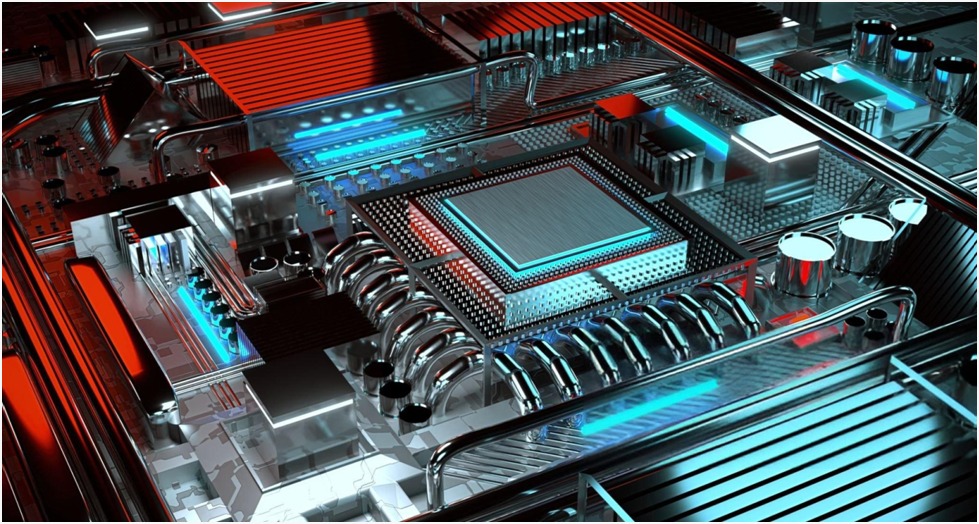Taiwan has further solidified its critical role in the global semiconductor industry with the inauguration of a new state-of-the-art plant dedicated to the production of advanced AI chips. On Thursday, the Tan-Ke factory in Taichung, central Taiwan, was officially opened by Siliconware Precision Industries Co. (SPIL), a leader in semiconductor packaging and testing.
The opening ceremony was graced by the presence of Jensen Huang, CEO and co-founder of Nvidia Corp., the California-based tech giant renowned for its pioneering AI chip designs. Huang’s visit underscores the growing partnership between Nvidia and SPIL, as both companies work together to meet the ever-increasing demand for more sophisticated and complex chips used in artificial intelligence applications.
Huang addressed the future of chip technology, emphasising the rapid evolution of AI chips. “The technology we’re working on is becoming more sophisticated. Chips are getting more and more complex, and the packaging technology will need to evolve as well,” Huang noted. He also spoke about the exciting integration of silicon photonics, a technology that will allow multiple packages of chips to be connected into one massive system, potentially revolutionising AI capabilities.
The collaboration between Nvidia and SPIL reflects the importance of Taiwan’s semiconductor industry in driving forward the global AI sector. The new facility, which will focus on semiconductor packaging, is expected to significantly contribute to the development of chips that power artificial intelligence systems across various industries.
SPIL also expressed its excitement about the partnership, with the company highlighting Huang’s visit as a testament to the strength of the relationship between Nvidia and SPIL. The visit signals a deepening collaboration between the two companies, and further solidifies Taiwan’s position as a vital hub in the global semiconductor supply chain.
In addition to the Tan-Ke factory opening, Huang’s visit to Taiwan also included a trip to Taiwan Semiconductor Manufacturing Co. Ltd. (TSMC), the world’s largest independent semiconductor contract manufacturer. TSMC plays an integral role in the production of chips designed by companies like Nvidia and AMD, with its cutting-edge manufacturing capabilities making it a cornerstone of the AI chip industry.
The significance of Taiwan’s role in the global AI chip supply chain was not lost on Huang, who emphasised that the island’s electronics industry, which is already world-leading, will see enormous benefits from the development of AI technologies in combination with robotics. He stated that these advances would be transformative for Taiwan, positioning it as a key player in the growing field of AI and robotics integration.
Huang’s visit comes at a time of heightened geopolitical tensions, particularly with China. The Biden administration in the United States has recently proposed a new framework for the export of advanced computer chips, specifically those used in the development of AI. The framework is designed to balance national security concerns with the economic interests of chip producers and the countries they export to. Part of the motivation behind these proposed restrictions is to make it more difficult for China to circumvent existing export controls, which have targeted the country’s access to advanced AI technologies.
However, the proposed framework has drawn criticism from chip companies, who argue that it could hurt the industry. The framework includes a 120-day comment period, meaning that the incoming Republican administration could ultimately shape the future rules regarding the sale of advanced chips. This uncertainty has left many in the semiconductor sector concerned about the potential implications for companies such as Nvidia and AMD, which design AI chips that are manufactured in places like Taiwan and South Korea.
Despite these challenges, the partnership between Nvidia and SPIL highlights the ongoing collaboration between Taiwanese semiconductor companies and international tech giants. Taiwan’s semiconductor industry continues to be at the forefront of AI chip development, and its role in shaping the future of artificial intelligence cannot be overstated.
As the global demand for AI-driven technologies continues to grow, Taiwan’s semiconductor industry is likely to remain a key player, providing the cutting-edge technology and expertise needed to drive the next wave of AI innovation. The opening of the Tan-Ke factory and the strengthening of ties between Nvidia and SPIL further underscore the importance of this small island nation in the global tech landscape.







